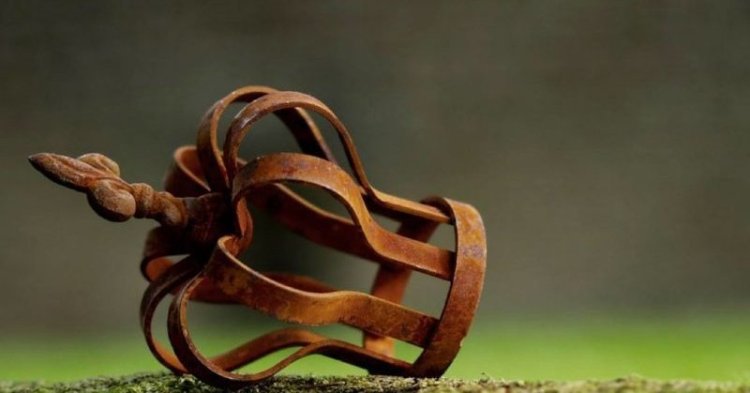Currently, there are eleven monarchies in Europe and seven of them are part of the European Union: Belgium, Denmark, Spain, the United Kingdom, Luxembourg, the Netherlands and Sweden. They are an exception in the European stage, but must nonetheless enforce all the democratic principles of the EU, as well as all the values and standards shared by its members.
Democratic monarchies that have built the European Union
The Member States that are governed by monarchies actually grant a very symbolic role to their monarchs. For instance, in the United Kingdom (that will remain a member of the EU until spring 2019) Queen Elizabeth II meets Prime Minister Theresa May every week in order to discuss internal political matters. And the Belgian king, Philippe, has more power than the British queen: he is in charge of forming the government in his country, but this duty is carried out under parliamentarian control.
Monarchs have limited power, clearly indicating that impediments have been created in the political systems of the European kingdoms. The political regime of these kingdoms must indeed be constitutional and parliamentarian, in accordance with the democratic principles of a State of Law, the separation of powers and the respect of Human Rights and minorities, all of which are criteria required for every state that wishes to become a member of the EU.
All political power is usually enforced by a Prime Minister who is appointed by the King or the Queen. But this restriction of power does not change the fact that monarchy is deeply anchored in these societies since the public opinion is still in favour of such systems. The image of the monarch is intrinsically linked to the idea of national unity, namely during economic, military or terrorist crises.
Besides being a minority in the EU, the European monarchies have also played a major role in the process of European integration. It is true that at the dawn of the European construction, during the signing of the Treaty of Brussels in 1948 that led to the creation of the Western Union (the soon-to-be Western European Union), only France was a republic in this first organisation that also gathered the United Kingdom and the Benelux countries.
European monarchies under fire
In November, Flanders, the northern half of Belgium, showed once again its discontent towards its monarch. To the question “Should monarchy keep its current form?”, 59% of Flemings answered that the function of the Belgian monarchy should be changed (meaning that it should take on a more ceremonial role). This study, led by the Belgian Institute of survey of social and political opinion and the Centre of sociological survey, shows that this region is not particularly fond of the monarchy.
Another factor that could explain this disaffection towards the crown is television. The month following the publication of the study, the television channel VTM (Vlaamse Televisie Maatschappij, or “Flemish Television Company”) announced the end of the series “Royalty” (one of VTM’s main series that told the story of a royal family). The reason for this is that younger viewers seem to be less interested in the monarchy. This channel came to the same conclusion: Flemings are turning their back on the monarchy.
To the question “Do we still need a monarch in Belgium?” 38% of them answered “no” in a region where only 28% of the population still trust their King. About a quarter of Flemings think that there should be no more monarchy in Belgium. The grand total amounts to more than 60% of Flemings who wish to have a more ceremonial monarchy or to establish a republic.
Nonetheless, if the King is linked to unity in Belgium, the fact that the King’s functions are being questioned indirectly compromises Belgian unity. This is further emphasized by the region of Wallonia, where 56,6% of inhabitants think that the King is “a safeguard against separatism”.
Monarchies: symbol of unity or national scission?
This year, the referendum on independence on 1 October plunged not only Catalonia, but also Madrid and the European Union, into a crisis of the monarchical model. This Catalan surge of freedom is indeed a direct insult to the unity of the Spanish crown, worn by King Felipe VI.
This referendum, unlawful in the eyes of the Constitution and the crown, was harshly criticised by the King during his speech, broadcasted on television on 3 October. According to the historian Benoît Pellistrandi (the author of “Histoire d’Espagne”, History of Spain), the King “knows that the only purpose of the Spanish monarchy is to ensure a good functioning of the Constitution”. When he says that Carles Puigdemont is an “outlaw”, the young King Felipe VI actually follows the example his father set in 1981 when a military putsch was threatening the democratic stability of the young Spanish republic.
The Catalan case is a very worrying one for the European Union. Letting Catalonia get its independence could inspire regions like Lombardy or Flanders to follow the Catalan example. This would lead to the implosion of the EU and create a new problem: thorny questions about the joining of these new countries to the EU.


1. On 6 January 2022 at 13:41, by democrat Replying to: Do European monarchies still have any purpose?
Replying to: Do European monarchies still have any purpose?
oof i don’t understand what’s going on in the minds of the belgian ppl. THEY WANT THE KING BE JUST A CEREMONIAL FIGURE!! as if he can even do anything as of now, practically he has no powers, so what’s the problem
Follow the comments: |
|
